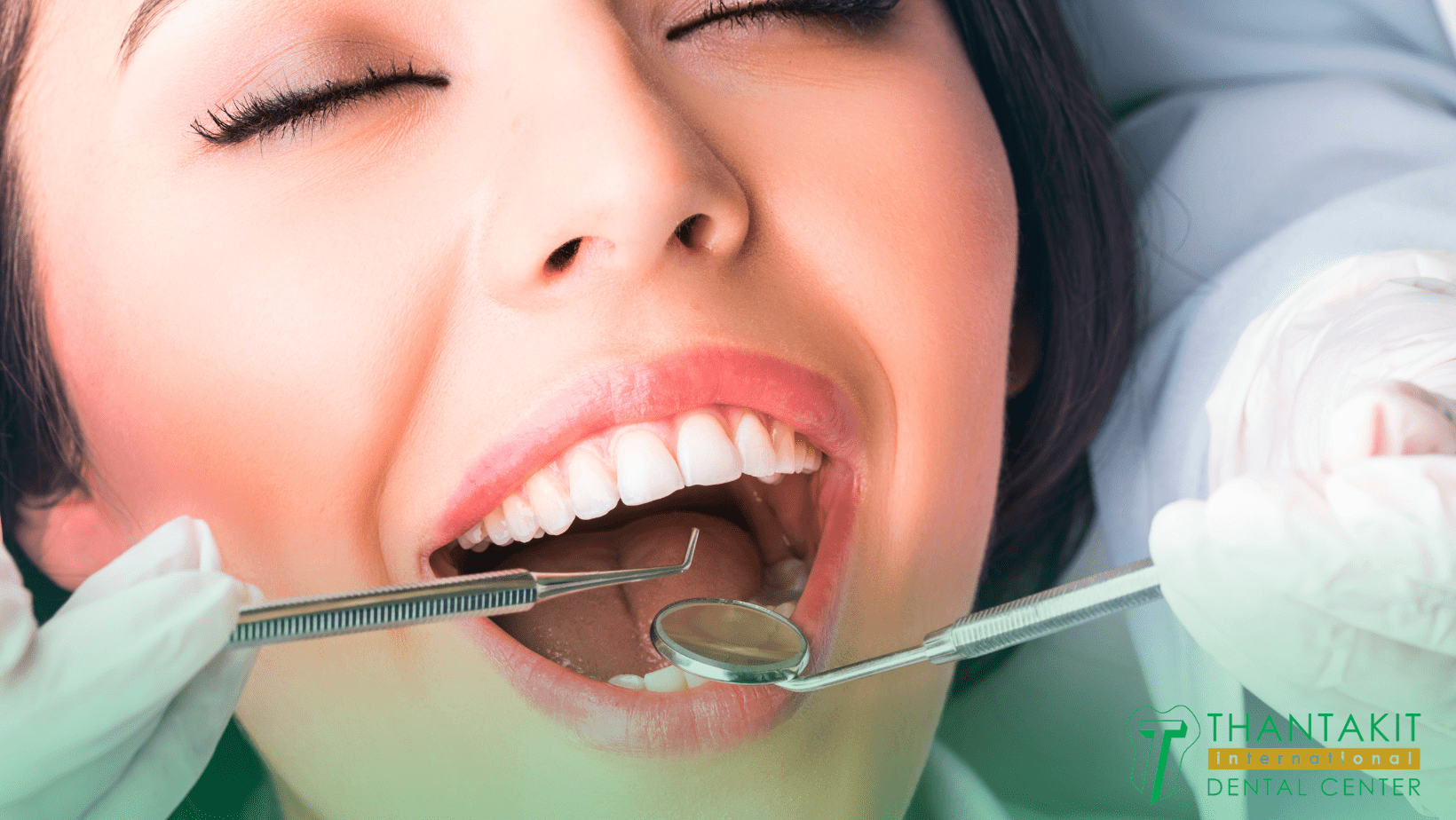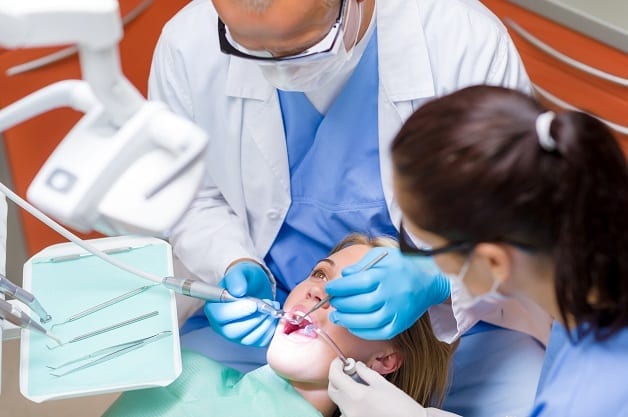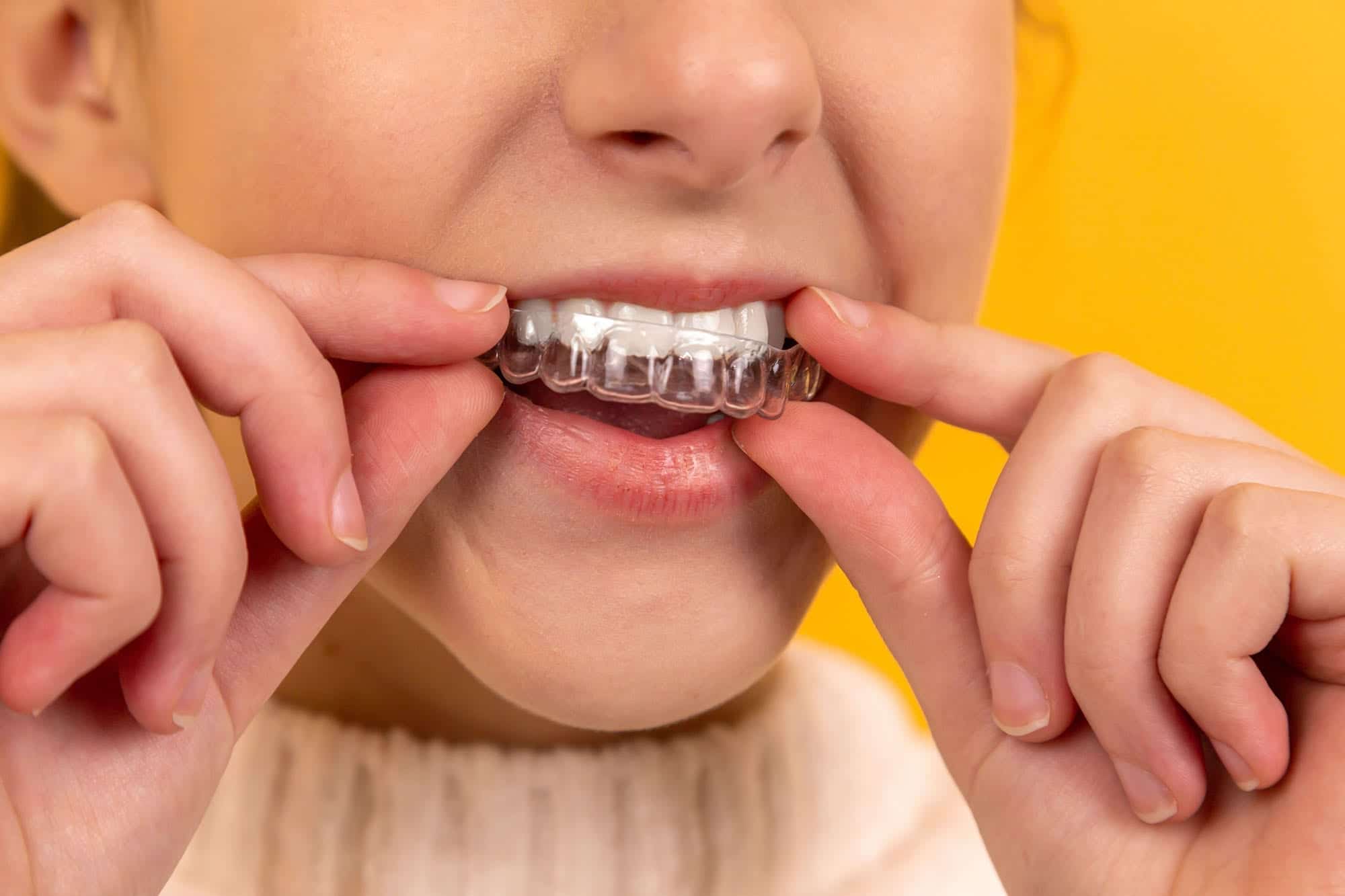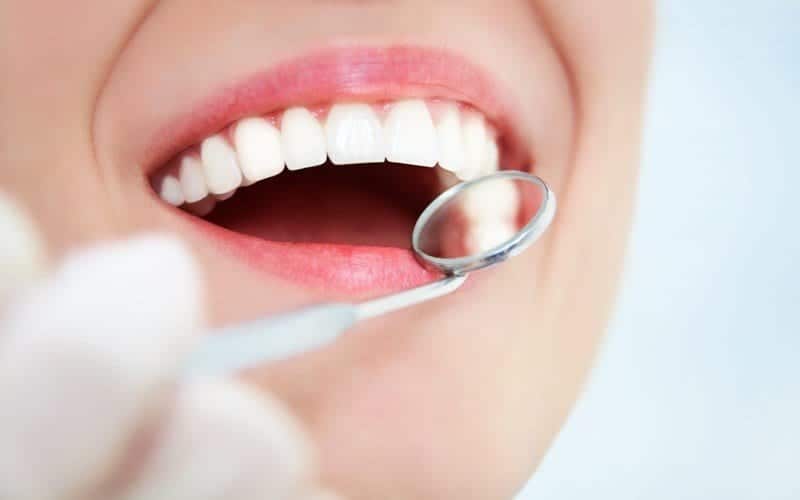Do you have sensitive teeth? If you feel mild or even sharp pain from your teeth when you bite down or eat really hot or really cold food, chances are, you do. There’s no need to worry because many people suffer from tooth sensitivity. So, what can you do in order to treat or even prevent teeth or tooth sensitivity in the first place?
In this article, we will discuss the Prevention and Treatment of Teeth Sensitivity. You’ll be happy to know that there are a number of ways to deal with this condition without allowing it to lower your quality of life.
Page Contents
Tooth Sensitivity 101

Some people suffer from teeth so sensitive they feel mild to sharp pain from ordinary activities such as consuming super cold or hot foods and beverages. They could also feel pain, a dull ache, or a twinge of sensitivity whenever they’re flossing or brushing too.
-
What is Tooth Sensitivity? It’s one of the many causes of toothache or could lead to it. It is borderline a full-blown toothache, but it fades away relatively fast as long as the offending stimuli of heat or biting down on food are removed from the equation.
-
Constant Pain and Fear: This persistent aching has many people living in constant fear of mild to severe pain. The more they do the mundane or even the necessary, the worse the pain gets from repeated contact with a toothbrush or hot or cold foods.
-
How Come This Happens? There are various reasons behind why tooth sensitivity patients suffer the way they do with the simplest of activities. It’s typically rooted with their enamel, dentin, or root getting compromised and exposed.
-
The Composition of the Dentin: The porous dentin layer is composed of microscopic channels known as tubules. They serve as nerve pathways. When these dentinal tubules are exposed without enamel protection, you might feel nerve pain.
Why Are Your Teeth So Sensitive?
If a spoonful of hot soup or a bite of ice cream is enough to send you reeling, don’t worry. You’re not alone in your suffering. There are many people in the world who feel the same pain from their teeth when exposed to stimuli such as hot or cold foods.
Sometimes, it’s a sign of a cavity or two. Other times, it’s a sign of sensitive teeth. Sensitive teeth differ from cavities in that it involves a thinner enamel layer or partial exposure of the dentin or cementum to offending stimuli.
Tooth sensitivity, sensitive teeth, or dentin hypersensitivity is discomfort, a dull ache, or a shooting pain from the teeth in response to certain stimuli. It could be pressure from biting, hot or cold temperatures of food, or food that’s too sweet or too spicy.
It could either be a chronic or temporary problem. It could affect a single tooth, several teeth, or all your teeth. It could come from mouth acids from plaque, overzealous teeth bleaching, or some sort of change in your oral hygiene regimen.
What Causes Sensitive Teeth?

If you feel a shooting pain from eating ice cream or drinking coffee as well as biting down on candy or anything hard or sweet, you might have tooth sensitivity. It could affect one tooth or more teeth in your mouth. It’s characterized by a sharp pain that’s sudden and shoots to your very core.
-
Rooted in Inner Tooth Exposure: It’s usually but not always cavities that expose dentin or the porous tissue in your teeth. In such cases, tooth filling is enough to resolve the issue. In other cases, your enamel has thinned out enough s to affect the dentin layer.
-
Causes for Dentin Exposure: The tubules get exposed by enamel loss, receding gum tissue, or dental cavities. With no protection, the nerves of your teeth get triggered more by stimuli compared to healthy teeth, leading to sensitive teeth or outright pain.
-
Cementum Exposure from the Gum Line: If even the cementum or the layer covering the tooth root is exposed along the gum line as your gums recede, you’ll experience tooth sensitivity.
-
Cementum versus Dentin Exposure: Either type of exposure can result in pain, whether your mouth is exposed to spicy foods, sweet foods, or hot/cold foods. All of which can trigger that shooting ache. Treatment depends on whether the cementum or dentin is partially or totally exposed.
Symptoms of Sensitive Teeth
Patients suffering from tooth sensitivity may experience discomfort or pain in response to stimuli or triggers. You might feel pain on the nerves of your tooth or teeth via the exposed dentin or cementum layer.
A combination of triggers or one singular stimulus can result in a reaction. The most common stimuli or triggers of sensitive teeth include the following:
-
Hot Food: Hot foods and beverages like coffee, teas, soups, and anything freshly cooked off of the pot or the microwave.
-
Cold Food: Cold foods and beverages such as ice cream cones, ice cream bars, desserts, ice cubes from soft drinks, and so forth.
-
Cold Air: Sucking in cold air when it’s wintertime or if you’re near an A/C unit, resulting in a pained reaction.
-
Cold Water: Ice-cold water can affect your sensitive teeth like a lick of ice cream, even if it’s water used during routine dental cleaning.
-
Sweet Food: Foods and beverages with excessive sweetness or those that contain a large amount of sweeteners, such as sodas and cakes, can make your sensitive teeth ache as well.
-
Acidic Food: Acidic foods and beverages, like anything containing vinegar or sour fruits like citrus can affect teeth with partially exposed dentin or cementum.
-
Brushing or Flossing Teeth: If your brushing or flossing of teeth results in pain, consult your dentist immediately, It could be tooth sensitivity or an awkwardly placed cavity.
-
Alcohol: Alcoholic drinks can impact your sensitive teeth, even if they’re from alcohol-based mouthwash. Use a nonalcoholic mouthwash instead. Besides which, alcohol is addictive poison that can do much more than give you sensitive teeth.
The symptoms may come and go for no reason. The pain can be mild, dull, or sharp and intense.
Factors That Contribute to Tooth Sensitivity
Tooth sensitivity can develop or worsen due to the following factors.
-
Tooth Grinding: If you unconsciously grind your teeth (bruxism), you can cause the enamel to wear out, thus exposing the dentin. Every time you have a cold or hot mean, you’ll feel it.
-
Overzealous Brushing: You can brush your teeth too hard. You want to regularly brush your teeth enough to avoid cavities and bad breath, but they can injure or trigger pain from sensitive teeth.
-
Forceful Pressure: Too much force from your brushing can irritate the exposed dentin or cementum. Ditto if you’re using a hard-bristle toothbrush (most commercial brushes feature soft bristles instead).
-
Friction on Enamel: When you brush too hard, over time you might wear down the enamel or outer shell of your teeth, thus exposing the dentin or cementum layer that causes teeth to become sensitive.
-
A Solution to Brushing Hard: Learn to brush with softer strokes. Lather or brush gently and rinse thoroughly, like you do with hair shampoo. Try brushing with an electric toothbrush to get the right amount of pressure.
-
What to Look for in Electric Brushes: Look for features such as a Smart Pressure Sensor on the handle that turns red when you brush too hard and green when you’re brushing just right.
-
Let the Electric Brush Clean for You: The best electric brushes apply the correct amount of brushing pressure automatically. You simply need to move it around for around two minutes before rinsing, gargling, and spitting.
-
Dental Treatments or Cleaning: Ironically, drilling the same tooth to put up tooth fillings or cleaning the teeth with bleach excessively have the side effect of thinner enamel and exposed dentin.
-
Temporary Tooth Sensitivity: Careful teeth whitening by even professional cosmetic dentistry experts can still lead to temporary tooth sensitivity. However, it should go away after the procedure ends. If symptoms persist, consult your dentist.
-
Tooth Decay: Tooth decay caused by plaque and tartar as well as worn-down fillings, chipped teeth, and broken teeth can cause sensitivity as well. In such cases, you’ll usually feel sensitivity in one particular region or tooth instead of most of your teeth.
-
Gum Disease: If your gums are inflamed or if you’re suffering from gingivitis, one of the complications includes tooth sensitivity. It happens as the gum line recedes and leaves more of the tooth root exposed to bacterial plaque and tartar.
-
Gum Recession: When your gum recedes because of periodontal disease, it leaves the tooth’s connection to the jawbone exposed to bacterial acids and infection, leading to cementum-exposed sensitivity or, worse, loose teeth.
-
GERD: Other acids, such as those found from gastroesophageal reflux or reflux of acid from your stomach to your esophagus and mouth, can wear down the teeth enamel over a period of time.
-
Vomit-Inducing Conditions: Conditions that induce vomiting such as bulimia and gastroparesis can cause acid to eat up the minerals of your enamel, thus exposing dentin.
How to Prevent Tooth Sensitivity

To prevent tooth sensitivity, a healthier mouth with no gum disease, plaque, tartar, or cavities is your best bet. You should also indulge in the following solutions and oral hygiene habits.
-
Regularly Clean Your Teeth: Overzealous brushing can damage teeth but that doesn’t mean you should neglect oral hygiene altogether. Prevent gum loss by flossing and brushing your teeth (gently) twice daily. Clean between the teeth and along the gumline.
-
Soft Bristles or Electric Toothbrushes: Use an electric toothbrush or a toothbrush with soft bristles to avoid damaging gums and scaling teeth enamel. Use Oral-B iO Electric Toothbrush or Oral-B Sensitive Replacement Brush Heads for the sake of teeth sensitivity treatment.
-
Special Toothpaste: Use toothpaste for sensitive teeth like Sensodyne, Crest Gum and Sensitivity, or Oral-B Enamel Repair. They repair the enamel as well as treat the receding gum line as well. They don’t have irritating ingredients but instead have desensitizing ones to reduce or block pain.
-
Dental Strips: You can also use tooth sensitivity strips like Crest Sensi-Stop Strips in order to apply special medicine to sensitive areas of your mouth. The thin, flexible strips offer targeted delivery of its key desensitizing ingredients. It relieves sensitivity for up to 30 days.
-
Non-alcoholic Mouthwash: When gargling with mouthwash like Listerine or Betadine, get a product that’s alcohol-free. They’re less painful to patients with sensitive teeth. Don’t drink as much alcohol, while you’re at it.
-
Treatment of Medical Conditions: By treating the medical conditions that left your teeth more sensitive than before, you should be able to fix the root of the problem. For instance:
-
GERD: Use acid reducers or antacids to treat GERD or acid reflux from your stomach. Prescription-strength treatments for GERD include esomeprazole (Nexium), lansoprazole (Prevacid), and the like.
-
Receding Gums: Aside from your dentist doing deep cleaning and scaling to prevent the periodontal disease from getting worse, you should also maintain good oral hygiene with a gentle electric toothbrush. Or you could get a gum graft.
-
Bulimia: A supervising psychiatrist can assist in treatment of this mental condition. Aside from psychotherapy, you might also be prescribed antidepressants for good measure.
-
Bruxism: You might need to wear mouth guards when you sleep to protect your teeth from unconscious grinding. You can also be trained to stop grinding teeth by practicing more mindfulness in the day.
-
Avoid Acidic or Sweet Foods and Drinks: Eat and drink hot or cold foods after brushing with toothpaste for sensitive teeth. However, it’s best to avoid sweet or acidic foods and drinks altogether until you’re able to resolve your issue.
-
Avoid Stress and Caffeine: Not only do avoiding hot drinks and stressors reduce pain triggers. They also help prevent bruxism or grinding your teeth when you’re asleep at night.
Many of these remedies take time for them to start working. A good remedy should provide you with improvement within a week’s time. If symptoms persist, consult your dentist for prescription remedies altogether.
You could avail of prescription-grade desensitizing agents or fluoride gel in the dental center or office itself. They protect your teeth by reinforcing the compromised enamel back to their original form.
How are Sensitive Teeth Diagnosed?

If you suspect you have sensitive teeth based on the symptoms outlined above, you can make sure that’s the case by making an appointment with your dentist for further consultation. Your dental doctor can then examine the state of your teeth.
They’ll check how sensitive they are to temperature and pressure by a tap of their instruments or a spray of their water sprayer. They’ll also look for potential issues like recessed gums, loose fillings, and cavities that could also lead to sensitive teeth.
A dentist can also end up diagnosing your sensitive teeth during prophylaxis or dental cleaning. As they clean your teeth, they’ll be doing an eye test of your dental health with their instruments or with dental x-rays.
You Don’t Have to Endure Tooth Sensitivity
Tooth sensitivity isn’t something you should live with. You can easily improve your quality of life by availing of the multitude of preventive solutions or remedies for the condition.
Don’t forget to properly observe your daily oral hygiene if you have sensitive teeth. You can also use special toothpastes to treat or alleviate the sensitivity of your teeth to allow you to eat ice cream or drink coffee like normal once more.
You can make use of special toothpastes from Oral-B or Crest in order to take care of your dental sensitivity right on its proverbial or dental roots. Using these products on exposed dentin or cementum as well as thinner enamel helps in sensitivity reduction.
Thantakit International Dental Center is Thailand’s longest established dental center. Situated in Bangkok, our clinic is renowned across the world as a destination for world-class dentistry, with most of our patients flying to us from Australia.
Please contact us today and get a FREE dental consultation.












